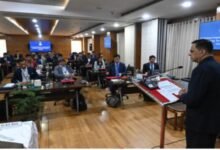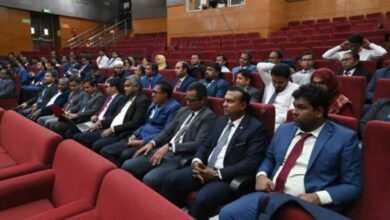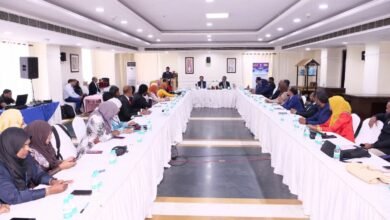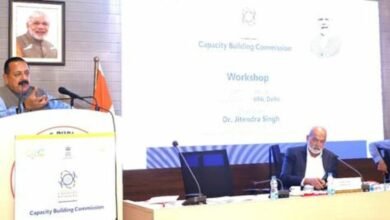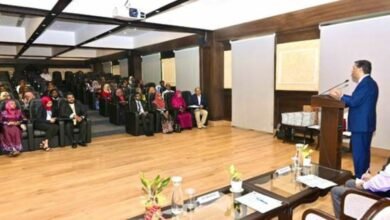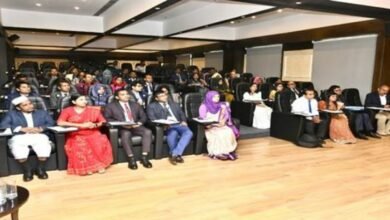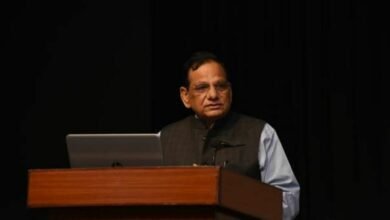National Centre for Good Governance (NCGG) commences the 60th CBP for civil servants of Bangladesh; So far, 2,145 officers from Bangladesh imparted training by NCGG
DG, NCGG, Shri Bharat Lal motivates civil servants to work with dedication in the making of ‘Century of Asia’
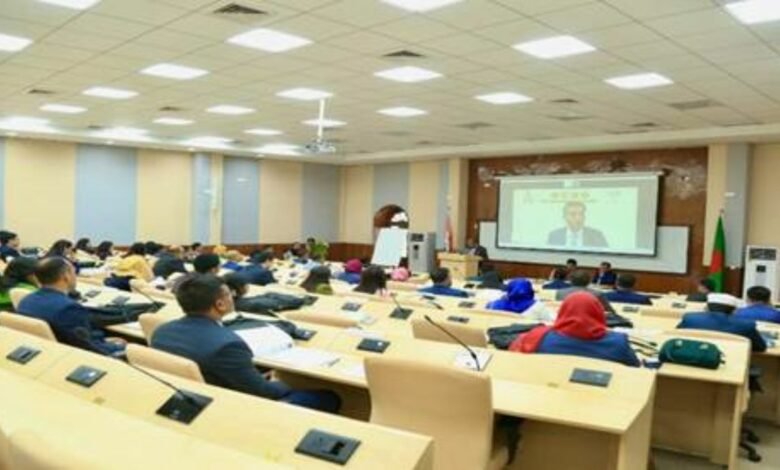
The 2-week Capacity Building Programme (CBP) for civil servants of Bangladesh (60th batch) was inaugurated at the NCGG campus, Mussoorie. Following the successful completion of the first phase of training, NCGG has signed an MoU with the Government of Bangladesh to enhance the skills and capabilities of an additional 1,800 civil servants by 2025. As part of the agreement, in the last two years, NCGG has already imparted training to 517 officers from Bangladesh.
Aligned with Prime Minister Shri Narendra Modi’s governance mantra of being ‘pro-people’ and putting citizens at the forefront of the development strategy, NCGG’s programme reinforces the principle of citizen-centric governance among civil servants. It aims to foster the exchange of information, knowledge, and innovative ideas while promoting the adoption of best practices and digital governance. By enhancing the sensitivity and responsiveness of civil servants, the programme seeks to bring about greater efficiency and effectiveness in public administration.
The inaugural session was chaired by Shri Bharat Lal, Director General of, the National Centre for Good Governance. In his address, he highlighted that the capacity-building programme has been developed in collaboration with the Government of Bangladesh and the Indian High Commission, Dhaka. The primary objective of this programme is to facilitate the exchange of knowledge and innovations that have been implemented in India to enhance governance and public service delivery. Shri Bharat Lal encouraged the participating officers to actively engage and make the most of this opportunity, emphasizing the importance of leveraging the programme to its fullest potential.
In his address, the DG emphasized the pivotal role played by partnerships like India and Bangladesh in making the 21st Century the ‘Asian Century.’ He highlighted the tremendous potential, growth, and influence these democratic countries possess in contributing to the progress and development of the continent as a whole. He underscored the role of civil servants in ensuring that citizens receive essential facilities promptly and efficiently. He urged them to work with speed and scale to provide access to basic amenities such as housing, water, toilets, cooking gas, education, healthcare, financial services, and skill development among others.
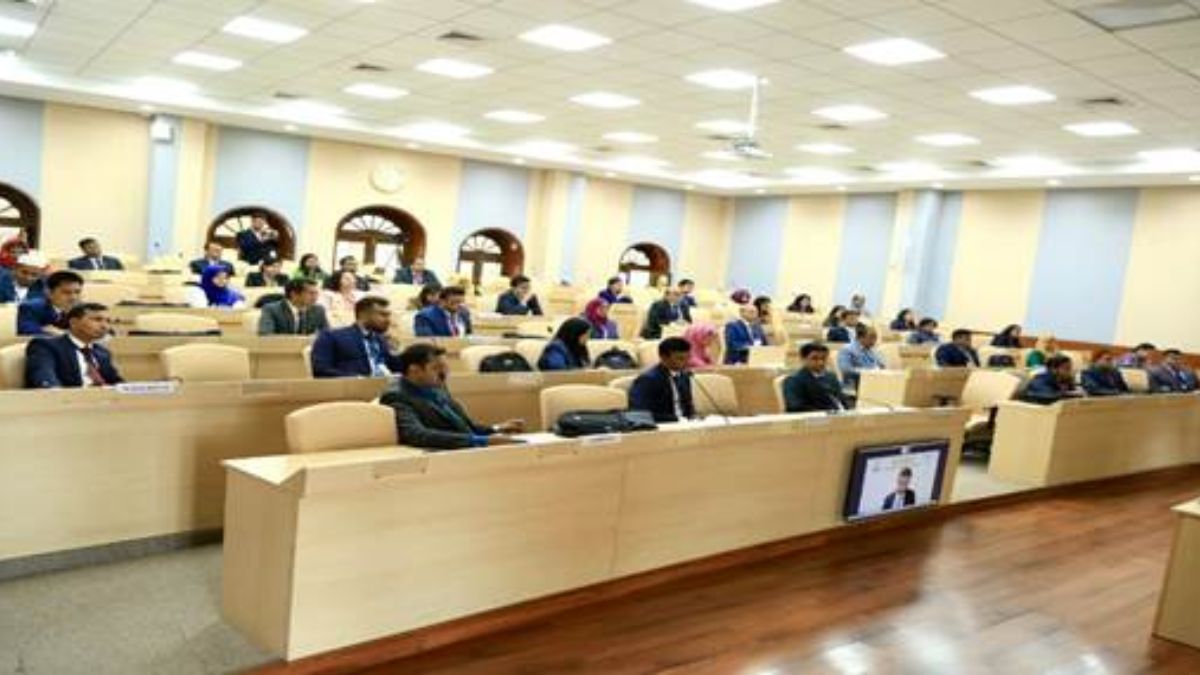
Underlining the instrumental role of women in nation-building, he urged civil servants to empower women. He emphasized the importance of creating an environment that fosters gender equality, ensuring that women have equal access to opportunities, resources, and decision–making processes.
As frontline responders and implementers of policies, civil servants have a critical responsibility in disaster management. Recognizing the devastating impact of natural disasters such as cyclones and floods, he highlighted the urgent need for civil servants to act as enablers in creating resilient infrastructures and response systems. By embracing data-driven approaches and leveraging the power of technology, civil servants can enhance their decision-making processes, facilitate efficient resource allocation, and ensure the safety and well-being of communities affected by such natural disasters.
Instead of management, providing lasting solutions key to sustainable socio-economic development, says Shri Bharat Lal
Acknowledging the officers as change agents working at the district level, Shri Bharat Lal emphasized their position at the forefront of policy implementation. He encouraged the participating officers to identify 4 – 5 key learnings from this programme that they can adapt and replicate with modifications as per the needs of their working environments. Their role as catalysts for change, combined with their deep understanding of local contexts, positions them to effectively implement policies and drive positive outcomes in their respective areas, he said.
Giving the overview of the programme, Dr A. P. Singh, Course Coordinator said that in the 60th capacity building programme, NCGG is sharing various initiatives taken in the country such as changing paradigm of governance, digital governance: case studies of passport seva & MADAD, housing to all: leveraging digital technology, best practices from various development schemes, Planning and building eco-friendly smart cities – case studies, the composite culture of India: A transcendental journey, Aadhar: a tool of good governance, disaster management with special reference to the coastal region, an overview of all India services, technical, sociological, and tourism project: a case study of statue of unity project, public-private partnerships, Swamitva scheme:
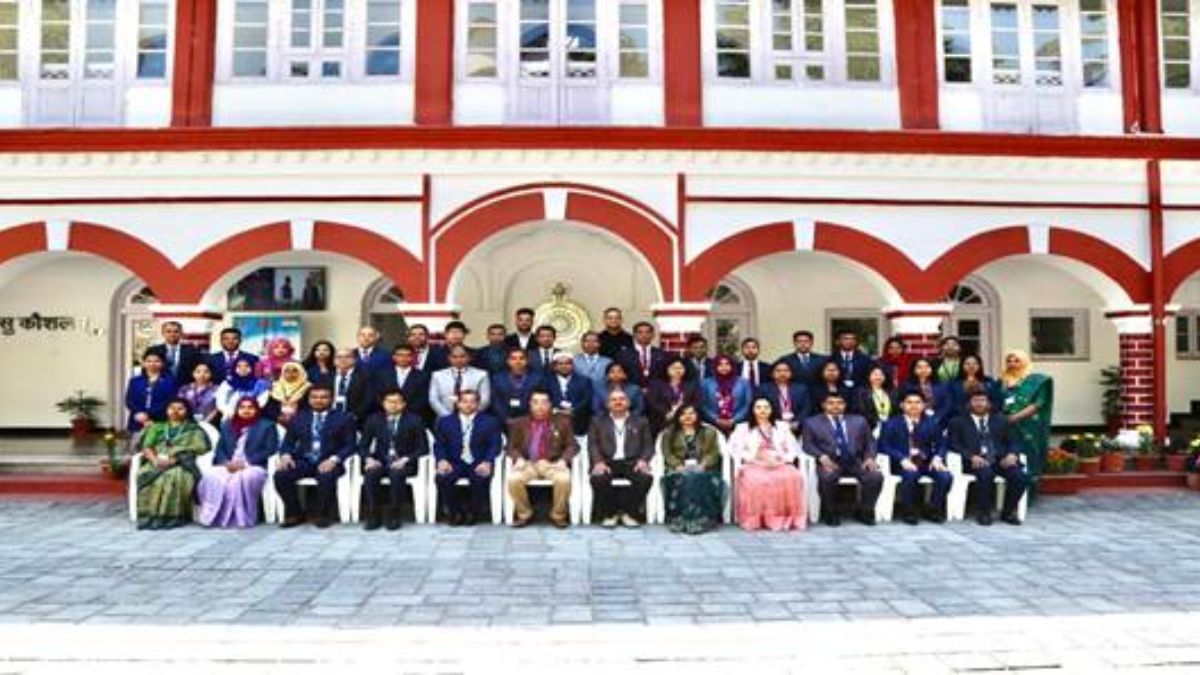
Property validation for rural India, performance optimization in the health sector, leadership, coordination and communication, e-governance and digital India UMANG, PM Gati Shakti Yojana, GeM: bringing transparency in governance, PMGSY: A Programme for rural connectivity, green energy, digital governance and public service delivery, vigilance administration, women-centric governance, anti-corruption strategies, circular economy, election management among others.
He also said that as a part of the programme, the participants will have the opportunity to embark on exposure visits to witness various developmental projects and institutions. These visits will provide them with valuable insights and first-hand experiences of notable initiatives and organizations. Some of the planned visits include the district administration in Saharanpur, the Parliament of India, and the Pradhanmantri Sanghralaya, among others.
NCGG in partnership with MEA, NCGG has imparted training to civil servants of 15 countries viz. Bangladesh, Kenya, Tanzania, Tunisia, Seychelles, Gambia, Maldives, Sri Lanka, Afghanistan, Laos, Vietnam, Nepal Bhutan, Myanmar and Cambodia. Recognizing the increasing demand, NCGG is proactively expanding its capacity to accommodate a greater number of civil servants from an expanding list of countries. This expansion is aimed at meeting the rising demand and ensuring that more nations can benefit from the expertise and resources offered by the NCGG.
The entire capacity-building programme will be supervised by Dr A. P. Singh, Course Coordinator for Bangladesh, Dr Sanjeev Sharma, Co-course Coordinator and the capacity-building team of NCGG.
Disclaimer: This is an official press release by pib.
